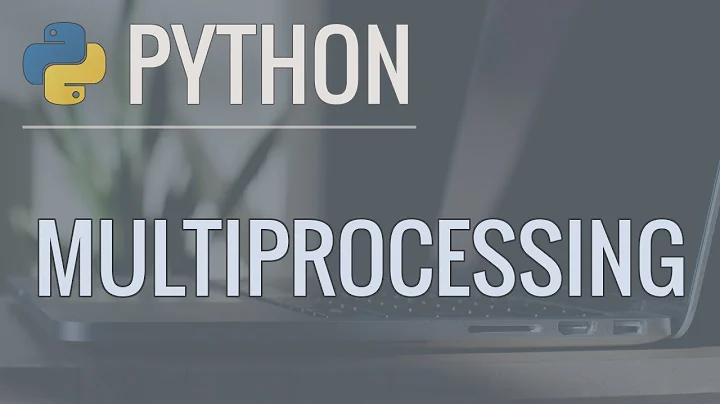PicklingError when using multiprocessing
The problem here is less of the "pickle" error message than conceptual: multiprocess does fork your code in "worker" different processes in order to perform its magic.
It then sends data to and from the different process by seamlessly serializing and de-serializing the data (that is the part that uses the pickle).
When part of the data passed back and forth is a function - it assumes a function with the same name exists in the callee process, and (I guess) passes the function name, as a string. Since functions are stateless, the called worker-process just calls that same function with the data it has received. (Python functions can't be serialized through pickle, so just the reference is passed between the master and the worker processes)
When your function is a method in an instance - although when we code python it is much like the same thing as a function, with an "automatic" self variable, it is not the same underneath. Because instances (objects) are stateful. That means the worker process does not have a copy of the object that is the owner of the method you want to call on the other side.
Working around ways of passing your method as a function to the map_async call won't work either - as multiprocess just uses a function reference, not the actual function when passing it around.
So, you should (1) either change your code so that you do pass a function - and not a method - to the worker processes, converting whatever states the object keeps to new parameters to be called. (2) Create a "target" function for the map_async call that reconstructs the needed object on the worker-process side, and then calls the function inside it. Most straightforward classes in Python are pickable themselves, so you could pass the object that is the function owner itself on the map_async call - and the "target" function would call the appropriate method itself on the worker side.
(2) may sound "difficult" but it is probably just something like this - unless your object's class can't be pickled:
import types
def target(object, *args, **kw):
method_name = args[0]
return getattr(object, method_name)(*args[1:])
(...)
#And add these 3 lines prior to your map_async call:
# Evaluate function
if isinstance (func, types.MethodType):
arguments.insert(0, func.__name__)
func = target
result = pool.map_async(func, arguments, chunksize = chunksize)
*disclaimer: I haven't tested this
Related videos on Youtube
matiasq
Updated on November 30, 2021Comments
-
matiasq over 2 years
I am having trouble when using the
Pool.map_async()(and alsoPool.map()) in the multiprocessing module. I have implemented a parallel-for-loop function that works fine as long as the function input toPool.map_asyncis a "regular" function. When the function is e.g. a method to a class, then I get aPicklingError:cPickle.PicklingError: Can't pickle <type 'function'>: attribute lookup __builtin__.function failedI use Python only for scientific computing so I am not so familiar with the concept of pickling, have just learned a bit about it today. I have looked at a couple of previous answers, like Can't pickle <type 'instancemethod'> when using multiprocessing Pool.map(), but I cannot figure out how to make it work, even when following the link provided in the answer.
My code, where the objective is to simulate a vector of Normal r.v's with the use of multiple cores. Note that this is just an example and maybe it does not even payoff to run on multiple cores.
import multiprocessing as mp import scipy as sp import scipy.stats as spstat def parfor(func, args, static_arg = None, nWorkers = 8, chunksize = None): """ Purpose: Evaluate function using Multiple cores. Input: func - Function to evaluate in parallel arg - Array of arguments to evaluate func(arg) static_arg - The "static" argument (if any), i.e. the variables that are constant in the evaluation of func. nWorkers - Number of Workers to process computations. Output: func(i, static_arg) for i in args. """ # Prepare arguments for func: Collect arguments with static argument (if any) if static_arg != None: arguments = [[arg] + static_arg for arg in list(args)] else: arguments = args # Initialize workers pool = mp.Pool(processes = nWorkers) # Evaluate function result = pool.map_async(func, arguments, chunksize = chunksize) pool.close() pool.join() return sp.array(result.get()).flatten() # First test-function. Freeze location and scale for the Normal random variates generator. # This returns a function that is a method of the class Norm_gen. Methods cannot be pickled # so this will give an error. def genNorm(loc, scale): def subfunc(a): return spstat.norm.rvs(loc = loc, scale = scale, size = a) return subfunc # Second test-function. The same as above but does not return a method of a class. This is a "plain" function and can be # pickled def test(fargs): x, a, b = fargs return spstat.norm.rvs(size = x, loc = a, scale = b) # Try it out. N = 1000000 # Set arguments to function. args1 = [1, 1, 1,... ,1], the purpose is just to generate a random variable of size 1 for each # element in the output vector. args1 = sp.ones(N) static_arg = [0, 1] # standarized normal. # This gives the PicklingError func = genNorm(*static_arg) sim = parfor(func, args1, static_arg = None, nWorkers = 12, chunksize = None) # This is OK: func = test sim = parfor(func, args1, static_arg = static_arg, nWorkers = 12, chunksize = None)Following the link provided in the answer to the question in Can't pickle <type 'instancemethod'> when using multiprocessing Pool.map(), Steven Bethard (almost at the end) suggests using the
copy_regmodule. His code is:def _pickle_method(method): func_name = method.im_func.__name__ obj = method.im_self cls = method.im_class return _unpickle_method, (func_name, obj, cls) def _unpickle_method(func_name, obj, cls): for cls in cls.mro(): try: func = cls.__dict__[func_name] except KeyError: pass else: break return func.__get__(obj, cls) import copy_reg import types copy_reg.pickle(types.MethodType, _pickle_method, _unpickle_method)I don't really understand how I can make use of this. The only thing I could come up with was putting it just before my code but it did not help. A simple solution is of course to just go with the one that works and avoid getting involved with
copy_reg. I am more interested in gettingcopy_regto work properly to take fully advantage of multiprocessing without having to go around the problem each time. -
matiasq over 12 yearsThank you for your answer. I have a question and would be very thankful if you could answer: 1. You say: "(1) either change your code so that you do pass a function - and not a method - to the worker processes, ...". This is what I am doing in my second try, i.e. with the test() function right? My question is: if I am NOT passing a function, how come that it works? Do you mean that I can run into future bugs? I tried your code and it worked too, but I don't see the point of "complicating" things if my first alternative already worked.
-
matiasq over 12 yearsI would also like to point out that your alternative (2) won't work for me, because my main problem is that the class that I am using is not pickable. I was trying to get around this using copy_reg, which should be possible since Steve Bethard used the second code I posted, and it worked for him. Again, thank you very much for your time.
-
matiasq over 12 yearsRegarding my first post, I was wrong. I did write your code, but it did not have any effect since the "if isinstance(func, types.MethodType):" never was true and thus the code was not executed. I apologize for not noticing this before.







